Science Ticker
A roundup of research and breaking news
Sign up for our newsletter
We summarize the week's scientific breakthroughs every Thursday.
-
 Astronomy
AstronomySatellite trio will hunt gravitational waves from space
The European Space Agency has green-lighted the Laser Interferometer Space Antenna, expected to launch in 2034.
-
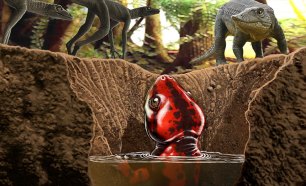 Paleontology
PaleontologyNew fossils shake up history of amphibians with no legs
The oldest near-relative of today’s snake-shaped caecilians could have an unexpected backstory.
By Susan Milius -
 Animals
AnimalsFacial recognition changes a wasp’s brain
A new study maps genes at play in a paper wasp’s brain during facial recognition.
-
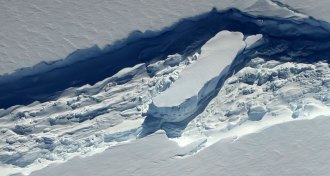 Earth
EarthAntarctica’s Larsen C ice shelf is within days of completely cracking
The crack in Antarctica’s Larsen C ice shelf grew another 17 kilometers between May 25 and May 31, 2017 and is at risk of breaking off a massive iceberg.
-
 Climate
ClimateU.S. will withdraw from climate pact, Trump announces
President Trump announced June 1 that the United States will withdraw from the Paris climate accord.
-
 Genetics
GeneticsMummy DNA unveils the history of ancient Egyptian hookups
A study of DNA extracted from Egyptian mummies untangles ancient ancestry and attempts to resolve quality issues.
-
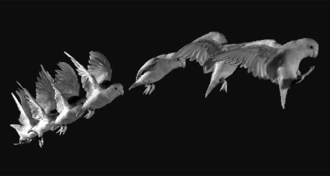 Animals
AnimalsPetite parrots provide insight into early flight
High-speed video shows that tiny parrots direct their hops to use the least amount of energy necessary.
-
 Planetary Science
Planetary ScienceTRAPPIST-1’s seventh planet is a chilly world
Follow-up observations of TRAPPIST-1 and its seven planets reveals details about the outermost one.
-
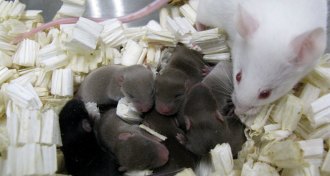 Life
LifeMouse sperm survive space to spawn
Sperm freeze-dried and sent into space for months of exposure to high levels of solar radiation later produced healthy baby mice.
-
 Health & Medicine
Health & MedicineOlder adults may not benefit from taking statins
Statins did not reduce heart attacks, coronary heart disease deaths or deaths from any cause in people age 65 and older, a new analysis finds.
-
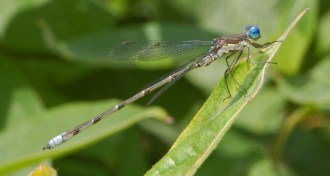 Climate
ClimateHigher temperatures could trigger an uptick in damselfly cannibalism
Experiments in the lab suggest that increases in temperature could indirectly lead to an increase in cannibalistic damselfly nymphs.
-
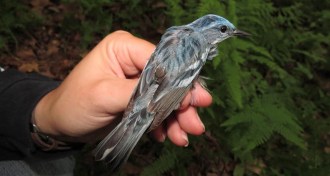 Animals
AnimalsTrackers may tip a warbler’s odds of returning to its nest
Geolocator devices that help track migrating birds could also hamper migration survival or timing.